The New Era of Restricting Voting
Wisconsin one of 20 states with a maze of new rules, as 1,400 new laws added 37 different voting requirements.
New rules could decide tight races
A June report by a collection of civil rights advocacy groups, including the ACLU and the NAACP, cited problems with minority and low-income voter access in the presidential primaries of several states that had implemented new voting requirements. These “warning signs,” the groups said, indicated that the new laws could still affect the outcome of November’s presidential election.
In Ohio, for example, recent changes to voter ID requirements, same-day registration and early voting could affect a tight election, according to Melissa Miller, a political science professor at Bowling Green State University.
“The question becomes what kinds of changes to voter laws make it easier versus harder for those who don’t tend to vote,” Miller said. “I think the effects tend to be marginal, but occasionally you’ll get an election like 2000 where a particular swing state — in that year it happened to be Florida, it could be Ohio in 2016 — where the result may be very, very close.”
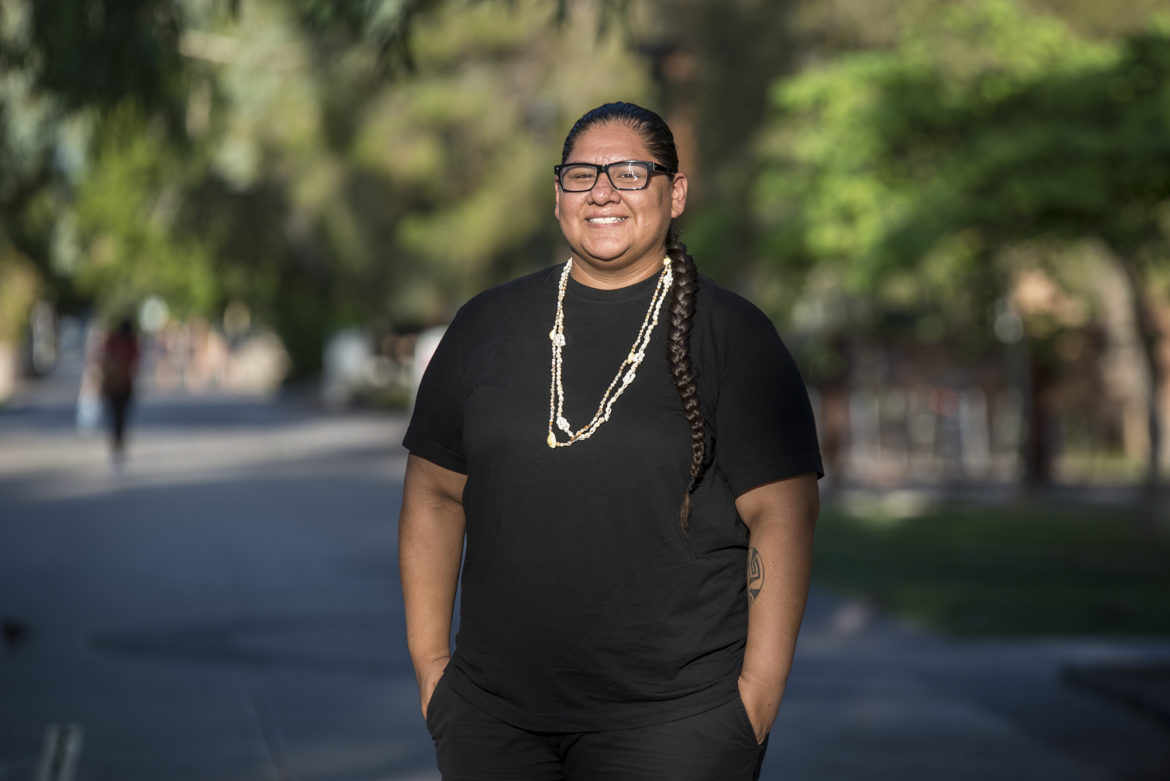
Mikah Carlos studies at Arizona State University and lives in the Salt River Pima-Maricopa Indian Community. She says a poll worker refused to let her use her tribal ID to vote in a recent election in Arizona. Across the country, many states including Wisconsin have passed dozens of new requirements since 2012, including presenting an identification card, to vote in the upcoming Nov. 8 election. Photo by Roman Knertser of News21.
Some states put new voting requirements in place only after the 2013 U.S. Supreme Court decision in the Shelby County v. Holder case negated the provision in the 1965 Voting Rights Act that required them to clear such changes in advance with the U.S. Justice Department.
Texas enacted one of the strictest photo ID laws in the country in 2011, only to have its implementation blocked by the federal government. But on the same day in 2013 on which the Shelby County decision was handed down, state officials announced that the ID law would finally be enforced. While it has since been ruled to be discriminatory four times by federal courts, it was kept in place while the state appealed those decisions.
“We think it’s perfectly reasonable when you need to show a photo to pick up your kids from school, sometimes to pick up your pet from the kennel, that it’s OK to show a photo to prove that you are the person who is voting,” Republican Texas Lt. Gov. Dan Patrick, a co-author of the voter ID law, told News21.
The plaintiffs in the Texas court case argued that the law amounts to a modern poll tax because many voters without photo ID are low-income people who, without driver’s licenses, faced trips of 90 minutes or more via public transportation to government offices to pay for and obtain the required forms of ID.
It wasn’t until July that another appellate ruling kicked the case back to a lower court to determine ways to make it easier for Texans without ID to vote after the court found that more than 600,000 lacked the required ID. Then, for the November election, the plaintiffs and the state reached an agreement to allow people without ID to have their votes count if they sign a sworn statement.
North Dakota, North Carolina laws blocked
On Aug. 1, a federal judge blocked a strict photo ID law in North Dakota from being enforced for the November election. The judge concluded that the state’s 2013 law, which only allowed four types of acceptable government-issued ID, would cause undue burdens for Native Americans, especially when “voter fraud in North Dakota has been virtually non-existent.”
After the Shelby County decision, North Carolina’s Republican-majority Legislature passed legislation that eliminated same-day registration, required a photo ID to vote and reduced the number of early voting days, eliminating one of the two Sundays for it. Early voting has been popular among African-Americans in the South, including the “souls to the polls” tradition of going to the polls together after church services on the Sundays leading up to Election Day.
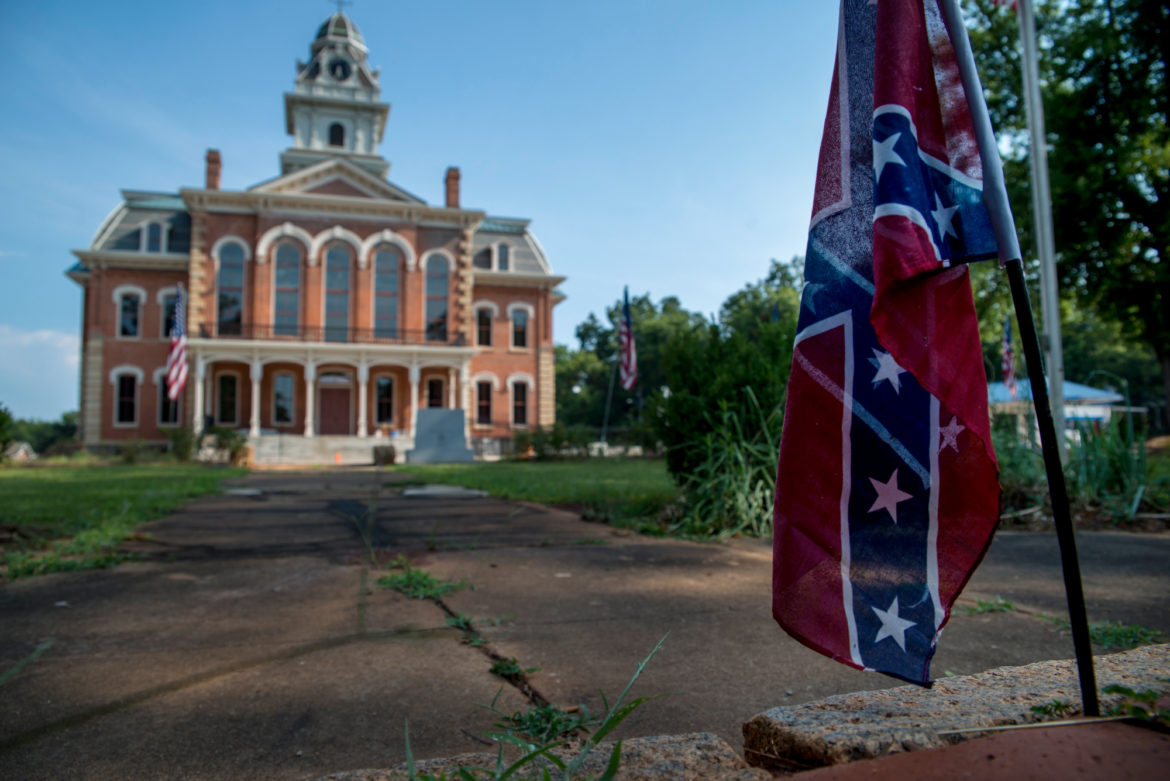
The Hancock County courthouse is in the county seat of Sparta, Georgia. Georgia is among 20 states that added new requirements for voting since the last presidential election in 2012. A U.S. Supreme Court decision in 2013 ended the U.S. Department of Justice’s ability to preemptively block voting laws it considers discriminatory in six southern states including Georgia. Photo by Roman Knertser of News21.
The North Carolina law was struck down in July, when the 4th Circuit Court of Appeals concluded that its provisions “target African Americans with almost surgical precision,” noting that they are “disproportionately Democratic.” Eliminating one of the Sundays for early voting “comes as close to a smoking gun as we are likely to see in modern times,” the appellate court said.
North Carolina state Sen. Ron Rabin, who helped pass the law, told News21 that it still allowed 10 days of early voting and that same-day registration caused voter confusion. “Let people be responsible for themselves once in awhile and what their duties are as a citizen,” Rabin said, “as opposed to keep trying to spoon-feed them everything, or give them everything.”
U.S. Rep. Marc Veasey, D-Texas, announced in May that he and other Democrats were forming the Congressional Voting Rights Caucus to kick-start support for a Democrat-proposed bill to revitalize the Voting Rights Act. So far, no Republicans have joined the caucus.
“You look at some of the things that happened after the 1960s and after the civil rights movement and after the Voting Rights Act, we’ve made lots of gains, lots of strides, but there’s definitely been, sadly, some things Republicans have done to scale back that momentum,” Veasey told News21. “There’s a lot of work we still have to do.”
Courtney Columbus, Mike Lakusiak and Sean Holstege contributed to this report. This report is part of a project on voting rights in America produced by the Carnegie-Knight News21 program. The Wisconsin Center for Investigative Journalism distributed and contributed to this report.
The nonprofit Wisconsin Center for Investigative Journalism (www.WisconsinWatch.org) collaborates with Wisconsin Public Radio, Wisconsin Public Television, other news media and the UW-Madison School of Journalism and Mass Communication. All works created, published, posted or disseminated by the Center do not necessarily reflect the views or opinions of UW-Madison or any of its affiliates.
Article Continues - Pages: 1 2
Voting Wars
-
Millennials Could Decide The Elections
 Oct 26th, 2016 by Elizabeth Campbell, Natalie Griffin and Amber Reece
Oct 26th, 2016 by Elizabeth Campbell, Natalie Griffin and Amber Reece
-
Why Felons Can’t Vote
 Oct 19th, 2016 by Kate Peifer and Rose Velazquez
Oct 19th, 2016 by Kate Peifer and Rose Velazquez
-
White Working-Class Voters Turning to Trump?
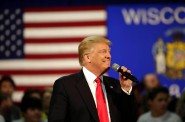 Sep 25th, 2016 by Emily Mills, Jimmy Miller and Lian Bunny
Sep 25th, 2016 by Emily Mills, Jimmy Miller and Lian Bunny




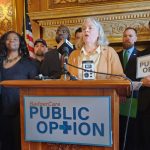














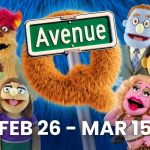


Voting identification is necessary just as identification is required for many activities we accept in our society and world wide. There is no reason why there can not be visibility and accountability for identification to participate in voting. The fraud issuse is evident and we should question why there is a perspective supporting you do not have to be visible and accountable.
Responsible leaders and citizens support identification for they do not have anything to hide.
Question the person and business that does not reveal rheir identification. There is a hidden motive for not being visible nor accountable. Common sense rules in this decision of required identification. Hidden motives are supported by no visibility nor accountability is required . Beware of the scammers.
Support the common sense of leadership that endorses identification to vote for visibility and accountability.
What fraud issue? There is no fraud problem. The most visible case of voter fraud recently is this one: http://www.theatlantic.com/politics/archive/2016/08/bannons-bad-news/497612/
You want to talk about hidden motives, North Carolina politicians revealed the real intent of voter ID laws. https://www.washingtonpost.com/politics/courts_law/inside-the-republican-creation-of-the-north-carolina-voting-bill-dubbed-the-monster-law/2016/09/01/79162398-6adf-11e6-8225-fbb8a6fc65bc_story.html?tid=a_inl
From the story: “A review of these documents shows that North Carolina GOP leaders launched a meticulous and coordinated effort to deter black voters, who overwhelmingly vote for Democrats. The law, created and passed entirely by white legislators, evoked the state’s ugly history of blocking African Americans from voting — practices that had taken a civil rights movement and extensive federal intervention to stop.”
If the issue were strictly voter identification and preventing voter impersonation, then why are voter ID laws frequently coupled with all sorts of other restrictions on voting, including fewer polling sites, reduced hours of early voting, and so on. Also, it’s rather peculiar that certain IDs are accepted and other government-issued IDs are not accepted.
This is not about voting fraud, it’s about making it more difficult for (certain) people to vote.
Exactly Eric S. That’s what the Washington Post story above makes clear. Republicans went to great lengths to target certain voters and limit their ability to vote as much as possible because voter suppression is what this is really about. One political party is behind all of these efforts. That alone should be a huge red flag.